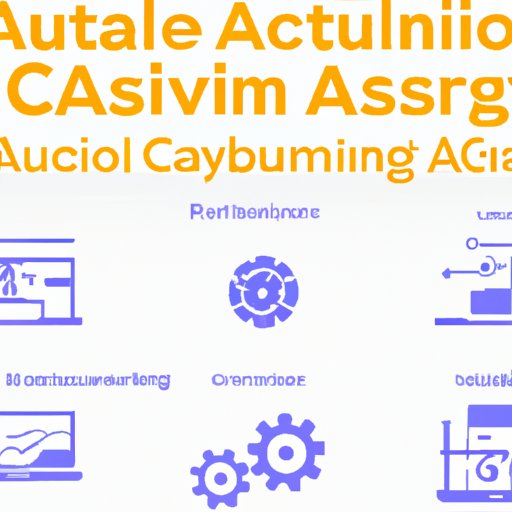Introduction
Artificial Intelligence (AI) has been rapidly evolving to meet the needs of businesses today. One of the most promising forms of AI is Causal AI. This type of AI uses advanced algorithms to identify and analyze causality between variables in order to make decisions and predictions. In this article, we will explore what causal AI is and how it can benefit organizations.
Definition of Causal AI
Causal AI is a form of artificial intelligence that uses advanced algorithms to measure the impact of one variable on another. It does this by analyzing the relationships between different variables and identifying the underlying causes or effects. For example, a company might use causal AI to investigate how changes in marketing campaigns affect sales. By understanding the cause and effect relationship between these two variables, the company can develop more effective marketing strategies.

Overview of Impact on Businesses
The potential of causal AI is immense. According to a recent study conducted by Microsoft, “causal AI can help us understand complex relationships between variables, identify hidden patterns, and gain deeper insights.” This type of AI has the potential to revolutionize the way businesses operate, from automating decision-making processes to improving predictive analytics.
Benefits of Causal AI for Organizations
Organizations stand to benefit greatly from the implementation of causal AI. Here are some of the key advantages of incorporating this technology into your business:
Automation of Decision Making
One of the primary benefits of causal AI is its ability to automate decision making processes. By analyzing the relationships between different variables, causal AI can determine the optimal outcome for any given situation. This can help organizations save time and resources, as well as reduce the risk of human error.
Improved Predictive Analytics
Using causal AI, businesses can also improve their predictive analytics capabilities. By understanding the cause and effect relationship between different variables, companies can better anticipate future trends and events. This can help them make better decisions and be more prepared for potential scenarios.

How to Implement Causal AI in Your Company
Implementing causal AI in your organization can be a daunting task. Here are some tips to help you get started:
Identifying the Right Use Cases
The first step in implementing causal AI is to identify the right use cases. Think about the areas of your business where you could benefit from improved decision making or predictive analytics. Once you have identified these areas, you can begin to develop the necessary algorithms to support your causal AI project.
Overcoming Challenges
Despite the many benefits of causal AI, there are some challenges that must be addressed. Data collection and accuracy can be a major obstacle, as the algorithms rely on accurate and up-to-date information. Additionally, there may be legal or ethical considerations to take into account when using this technology. It’s important to be aware of these potential issues and create a strategy to address them.
Conclusion
Causal AI has the potential to revolutionize the way businesses operate. It can automate decision making processes and improve predictive analytics capabilities. Organizations stand to benefit greatly from the implementation of this technology, but they must first identify the right use cases and overcome potential challenges. With the right approach, causal AI can be a powerful tool for any organization.
(Note: Is this article not meeting your expectations? Do you have knowledge or insights to share? Unlock new opportunities and expand your reach by joining our authors team. Click Registration to join us and share your expertise with our readers.)
